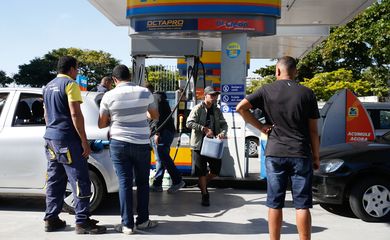Gov’t maintains estimated growth of economy at 5.3 percent this year

Brazil’s Ministry of the Economy maintained its projection for the growth of the economy (GDP) this year at 5.3 percent, but raised the estimated inflation from 5.9 to 7.9 percent for the period, due to the influence of the hike in fuel and electric energy prices.

The forecasts are in a document dubbed Boletim MacroFiscal, released Thursday (Sep. 16). The new projections supersede the forecasts from the previous report, published in July.
During an online present aimed at unveiling the data, Secretary for Economic Policy Adolfo Sachsida restated that mass vaccination is the best economic policy for the country and made an appeal to have the population complete its vaccine calendar against COVID-19.
Outlook
The report predicts a GDP growth of 2.5 percent starting in 2022. The government expects this will be brought about by the positive effects of pro-market reforms that have been approved or are under consideration, as well as the process of fiscal consolidation, which should lead to an improvement in public accounts after a solid increase in costs on the pandemic.
“However, it must be stressed that the risks in the prospective scenario, especially with regards to the water [crisis] and a possible aggravation of the pandemic, should be observed with caution as its impact on the Brazilian economy is assessed,” the document reads.
The secretary went on to mention that it is necessary to eliminate the “noise” that could lead to some institutions to lower growth expectations. “Every democracy is noisy. It is our job to improve communication in order to make clear what is noise and what is a signal,” he said.
Inflation
The estimated inflation, as gauged by the National Broad Consumer Price Index (IPCA) went up from 5.9 to 7.9 percent this year. The value is above the 3.75 percent target set by the National Monetary Council, as well as above the upper limit of the tolerance margin—1.5 percentage points, or 5.25 percent.
Also per the publication, the IPCA has been more strongly impacted by fluctuations in the prices of monitored items—goods like gasoline, liquefied petroleum gas, and medications.
For 2022, the IPCA projection went from 3.5 to 3.75 percent. Starting in 2023, the projection converges towards the target: 3.25 percent in 2023 and three percent from 2024 onwards.




